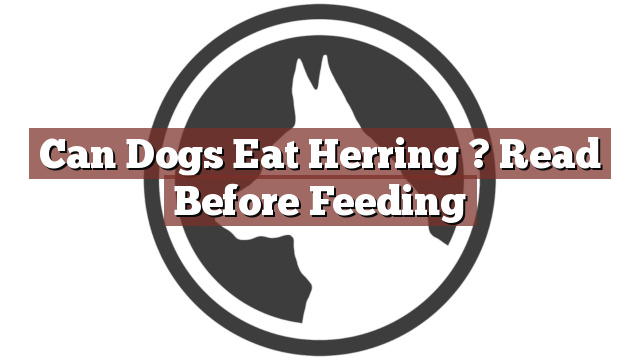Understanding Your Dog’s Dietary Needs
As responsible pet owners, it is crucial for us to understand our dog’s dietary needs. Dogs are primarily carnivorous animals, and their diet should consist mainly of high-quality protein sources. However, dogs also require a balanced diet that includes essential nutrients such as carbohydrates, fats, vitamins, and minerals. While it is tempting to share our meals with our furry friends, not all human food is safe for dogs to consume. It is essential to be aware of what foods are suitable and beneficial for our pets’ health and well-being.
Can Dogs Eat Herring? Read Before Feeding
Can dogs eat herring? Many pet owners wonder if it is safe to share this delicious fish with their canine companions. The answer is yes. Dogs can eat herring, as it is a great source of omega-3 fatty acids and protein. These nutrients are beneficial for their overall health, including their coat and skin. However, it is important to note that herring should be served in moderation and prepared properly before feeding it to your dog.
Pros and Cons of Feeding Herring to Dogs
Feeding herring to dogs can have various benefits, but it is also essential to consider some potential drawbacks. On the positive side, herring is a nutritious food that provides dogs with omega-3 fatty acids. These fatty acids have anti-inflammatory properties and can improve joint health, reduce skin allergies, and support a healthy immune system. Herring is also a great source of protein, which is necessary for muscle development and repair.
However, there are a few potential drawbacks to feeding herring to dogs. One concern is the high sodium content in some herring products, such as canned or pickled herring. Too much sodium can lead to health issues like dehydration or high blood pressure in dogs. Additionally, herring should always be served boneless, as fish bones can pose a choking hazard or cause injury to a dog’s digestive tract. Lastly, introducing a new food into your dog’s diet should always be done gradually to avoid any gastrointestinal upset.
In Conclusion: Considerations for Feeding Herring to Your Dog
In conclusion, herring can be a healthy addition to your dog’s diet when served in moderation and prepared properly. While it provides essential nutrients like omega-3 fatty acids and protein, it is important to consider the potential drawbacks, such as the sodium content and the need for boneless preparation. As with any dietary changes, consulting with your veterinarian is always recommended. They can provide you with personalized advice based on your dog’s specific needs and health conditions. By understanding your dog’s dietary needs and making informed choices, you can keep your furry friend happy and healthy for years to come.
Thank you for taking the time to read through our exploration of [page_title]. As every dog lover knows, our furry friends have unique dietary needs and responses, often varying from one canine to another. This is why it's paramount to approach any changes in their diet with caution and knowledge.
Before introducing any new treats or making alterations to your dog's diet based on our insights, it's crucial to consult with a veterinarian about [page_title]. Their expertise ensures that the choices you make are well-suited to your particular pet's health and well-being.
Even seemingly harmless foods can sometimes lead to allergic reactions or digestive issues, which is why monitoring your dog after introducing any new food item is essential.
The content provided here on [page_title] is crafted with care, thorough research, and a genuine love for dogs. Nevertheless, it serves as a general guideline and should not be considered a substitute for professional veterinary advice.
Always prioritize the expert insights of your veterinarian, and remember that the health and happiness of your furry companion come first.
May your journey with your pet continue to be filled with joy, love, and safe culinary adventures. Happy reading, and even happier snacking for your canine friend!

